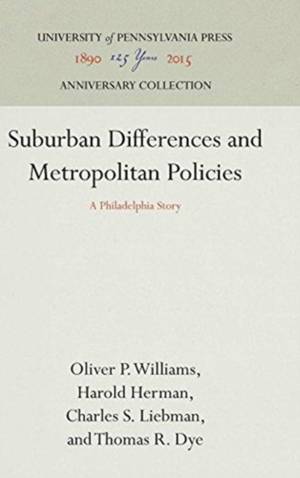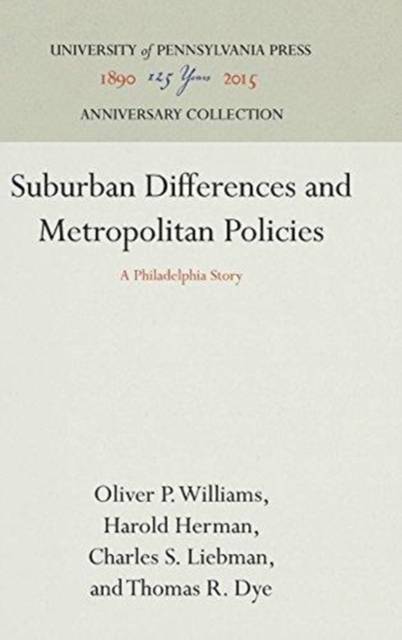
- Retrait gratuit dans votre magasin Club
- 7.000.000 titres dans notre catalogue
- Payer en toute sécurité
- Toujours un magasin près de chez vous
- Retrait gratuit dans votre magasin Club
- 7.000.0000 titres dans notre catalogue
- Payer en toute sécurité
- Toujours un magasin près de chez vous
Suburban Differences and Metropolitan Policies
A Philadelphia Story
Oliver P Williams, Harold Herman, Charles S Liebman, Thomas R DyeDescription
The emergence of the metropolitan complex as the characteristic urban form in the United States has raised the question of the adequacy of traditional local governments to cope with changed local conditions. Most studies on this subject have focused on the attempts by suburbs to achieve metropolitan forms of government, stressing the interdependence of local units of government and the resulting need for integrative governments to formulate and execute area-wide policies. This book takes note of the failures of the metropolitan governmental proposals and turns attention to the forces for decentralization in the government of metropolitan areas. In other words, this is a study of the forces for independence--the values that impel local units to cherish and protect their separate identities. It seeks to describe these values not as sentiments, but as actual public policies realized through the actions of local governments. Specifically, it analyzes the way in which local municipal and school fiscal policies and the patterns of inter-local cooperative arrangements reflect the discrete circumstances of the individual suburbs.
The locus of the study is the Philadelphia area, but its findings will be of interest to a national as well as a local audience. Approximately 300 municipalities are covered in the analysis. The findings of the study are discussed for their implications for future changes in the governing of metropolitan areas. Although scholarly in its approach to urban problems, this empirical study has been written in a way that will make it understandable and valuable to the lay reader. It is illustrated with maps and charts, and includes a lengthy statistical appendix.Spécifications
Parties prenantes
- Auteur(s) :
- Editeur:
Contenu
- Nombre de pages :
- 368
- Langue:
- Anglais
- Collection :
Caractéristiques
- EAN:
- 9781512809749
- Date de parution :
- 29-01-65
- Format:
- Livre relié
- Format numérique:
- Genaaid
- Dimensions :
- 156 mm x 234 mm
- Poids :
- 684 g

Les avis
Nous publions uniquement les avis qui respectent les conditions requises. Consultez nos conditions pour les avis.






